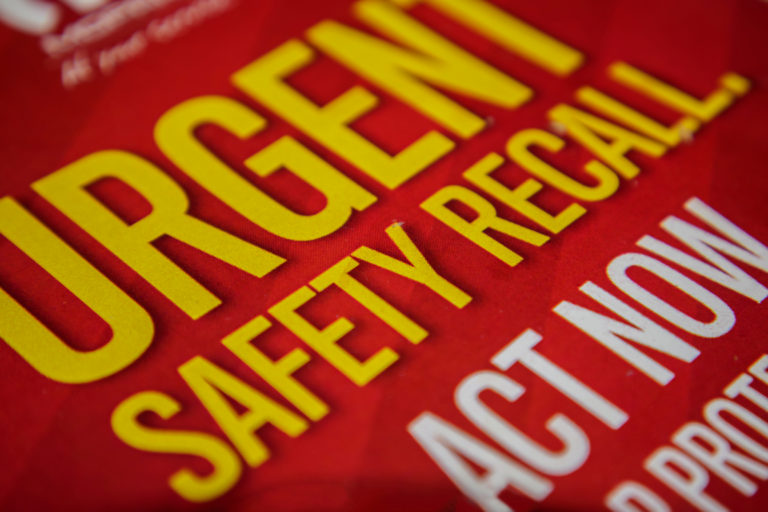Deadly Crash in Florida Prompts Tire Valve Recall
Dill Air Control Products of Oxford, N.C. (“Dill”), the U.S. distributor of the valve stems, notified the National Highway Traffic Safety Administration of the potential problem as a result of the death of Robert Monk. Monk was killed last November when a tire on his 1998 Ford Explorer failed, causing a rollover crash. Although the tires on Monk’s vehicle had been inspected two months prior to the accident, a large strip of the tire came off while he was driving on the highway. This was the result of under-inflation, which allows the metal rim of the tire to dig into the rubber. A cracked valve stem can cause under-inflation. In May, Dill issued an advisory to tire retailers about problems with surface cracks on the outside of the valve stem near the rim hole and asked retailers to return all valve stems manufactured in 2006 and to inspect valve stems installed from September 2006 through June 2007.
Because of the large number of valve stems in circulation, they could be on any number of automobiles and are extremely difficult to track.
A Consumer Safety Report (click here for link to Consumer Reports) in June 2008 stated that the recall of millions of faulty tire valve stems from China had been expanded. The rubber replacement valve stems in question may crack prematurely and cause tires to lose air quickly. At high speeds such rapid deflation can cause a serious crash.
Tire accessory distributor Tech International of Johnstown, Ohio, originally recalled model TR-413, which was manufactured for Dill Air Control Products of Oxford, N.C. by Topseal Shanghai Auto-Parts Co. Ltd. in China. The company said at that time the recall involved as many as six million valve stems.
But Tech International has now expanded the recall to include five additional models—TR-413CH, TR-414, TR-415, TR-418 and TR-423—manufactured between August 2006 and November 2006. Tech Int’l did not say how many of those additional models of valve stems it has distributed. Dill said earlier that it had shipped as many as 30 million of the TR-413 valve stems in the North American market.
The National Highway Traffic Safety Administration opened an investigation of the valve stems on May 15, 2008.
Most consumers will have a hard time figuring out with any certainty if they have any of the defective valve stems on their tires. That’s because once a valve stems is installed, the only way to check to see if it is one of the suspected models is to dismount the tire from the wheel and inspect if from the inside.
Eugene Petersen, program leader for tire testing at Consumer Reports, says motorists should conduct a visual inspection of their valve stems to check for cracks. To do this, he says, remove the hubcap (if there is one) and move the top of the stem around, checking for any sign of cracks in the base of the stem where it meets the wheel.
This procedure is a best practice for all rubber valves regardless of manufacturer.
Step 1: Locate the rubber valve stem on your wheel, this is the place where you check air pressure and inflate your tire. Flex the valve outwards toward the tire and hold the valve against the rim during inspection.
Step 2: Examine the rubber valve for cracks. The use of a flashlight can aid the inspection.
Step 3: If one valve stem is found to be cracked, go to the tire dealer from which you bought your tires and have all 4 valve stems replaced.
It is recommended to check your tires’ air pressure once/month. It is recommend to also to inspect the rubber valve stems for cracks when you check your tires’ air pressure.
Dill has posted photos online of what consumers should look for when they inspect valve stems.
Website for Dill Controls http://www.dillaircontrols.com
Website for Tech International: http://www.techtirerepairs.com/_assets/documents/SnapInValveRecall.pdf
The National Highway Traffic Safety Administration has opened an investigation concerning the valve stems. NHTSA’s investigation information is below.
Link to NHTSA Investigation Information
NHTSA Office of Defects Investigation (ODI)
NHTSA Action Number : PE08036
NHTSA Action Number : PE08036 NHTSA Recall Campaign Number : N/A
Make / Models : Model/Build Years:
DILL-ACP / TR-413 (TIRE VALVE) 9999
DILL-ACP / TR-414 (TIRE VALVE) 9999
DILL-ACP / TR-418 (TIRE VALVE) 9999
Manufacturer : DILL AIR CONTROLS PRODUCTS
Component :
TIRES:VALVE
Date Investigation Opened : May 15, 2008
Date Investigation Closed : Open
Summary: ON APRIL 30, 2008, DILL AIR CONTROL PRODUCTS (DILL) MET WITH ODI TO DISCUSS A POTENTIAL DEFECT IN SOME OF THE SNAP-IN TIRE VALVES MANUFACTURED FOR DILL BY TOPSEAL, A SUBSIDIARY OF THE SHANGHAI BAOLONG AUTOMOTIVE CORPORATION. DILL DESCRIBED A PROBLEM WITH VALVES LEAKING FROM CRACKS DUE TO APPARENT OZONE EXPOSURE AND INDICATED THAT EARLY INVESTIGATION HAD TRACED THE CONCERN TO A FIVE MONTH MANUFACTURING PERIOD IN 2006. DILL ALSO INDICATED THAT IT HAD RECENTLY BEEN SERVED WITH A LAWSUIT ALLEGING THAT AIR LEAKAGE FROM A CRACKED VALVE INSTALLED IN SEPTEMBER 2006 IN THE RIGHT REAR WHEEL OF A MODEL YEAR 1998 FORD EXPLORER RESULTED IN A FATAL ROLLOVER CRASH IN NOVEMBER 2007. ON MAY 2, 2008, DILL ISSUED AN ADVISORY TO IT’S NORTH AMERICAN CUSTOMERS IN THE TIRE RETAIL INDUSTRY DESCRIBING POTENTIAL CONCERNS WITH OZONE RESISTANCE IN TR 413, TR 413 CHROME, TR 414 AND TR 418 DILL ACP VALVE STEMS MANUFACTURED FROM JULY 2006 THROUGH NOVEMBER 2006. DILL INDICATED THAT THE SUSPECT VALVES WERE SHIPPED TO NORTH AMERICAN CUSTOMERS FROM AUGUST 2006 TO FEBRUARY 2007. ACCORDING TO THE BULLETIN, DILL’S ANALYSIS OF TIRE VALVES RETURNED FROM THE FIELD IDENTIFIED PROBLEMS WITH SURFACE CRACKS ON THE OUTSIDE OF THE RUBBER NEAR THE RIM HOLE AND THAT INITIAL INVESTIGATION CENTERED ON OZONE EXPOSURE. DILL HAS ADVISED ODI THAT APPROXIMATELY 30 MILLION VALVES WERE MANUFACTURED DURING THE SUSPECT MANUFACTURING RANGE. DILL’S BULLETIN REQUESTS THAT ITS CUSTOMERS INSPECT LOT NUMBERS OF STOCK AT ALL LEVELS OF DISTRIBUTION AND RETURN ALL PRODUCT MANUFACTURED IN 2006 (LOT NUMBERS STARTING IN 06). THE BULLETIN ALSO RECOMMENDS THAT RETAILERS INSPECT ALL VALVE STEMS INSTALLED FROM SEPTEMBER 2006 THROUGH JUNE 2007 AS CUSTOMERS RETURN TO TIRE STORES FOR REGULAR SERVICE. A PRELIMINARY EVALUATION HAS BEEN OPENED TO ASSESS THE SCOPE, FREQUENCY AND SAFETY CONSEQUENCES OF THE ALLEGED DEFECT.
For more information on the valve stem recall, contact the National Highway Traffic Safety Administration’s hotline at 1-888-327-4236 or visit their website: http://www.nhtsa.dot.gov/



